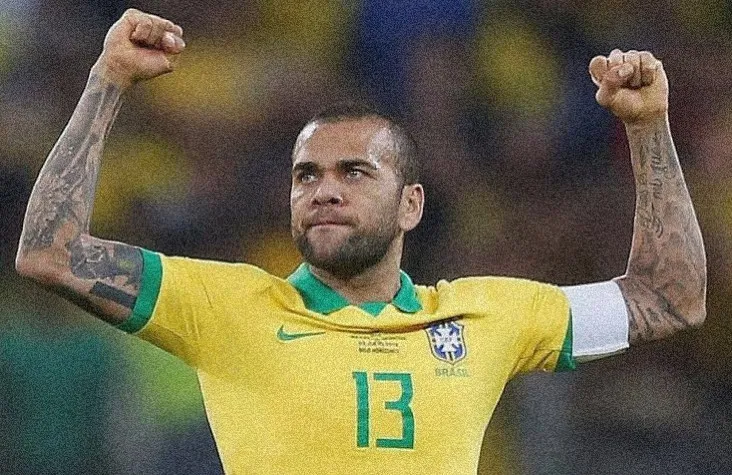Dani Alves Acquitted of Sexual Assault Charges by Spanish Court

Synopsis
Key Takeaways
- Dani Alves' conviction was overturned due to insufficient evidence.
- The court highlighted inconsistencies in the alleged victim's testimony.
- Alves maintained his innocence throughout the trial.
- He was released on bail pending the appeal outcome.
- The prosecution may still challenge the decision.
New Delhi, March 28 (NationPress) Brazilian footballer Dani Alves has successfully challenged his sexual assault conviction, as a Spanish court annulled the previous ruling on Friday. The court's decision, which pointed to insufficient evidence, represents a major turnaround in this widely publicized case that has drawn global attention.
Alves, a former star for Barcelona and the Brazil national team, was convicted in February 2024 of raping a woman in a nightclub back in December 2022. This conviction led to a prison sentence of four years and six months. Throughout the trial, which lasted three days, the footballer steadfastly denied any wrongdoing, asserting his innocence.
After his conviction, Alves was provisionally released in March 2024 on a bail of 1 million euros (approximately USD 1.08 million), as his legal team prepared to escalate the case. On Friday, the higher court ruled in his favor, emphasizing that there was insufficient evidence to maintain the earlier verdict.
The Catalan high court pointed out inconsistencies in the alleged victim’s statements, especially in areas that could be objectively validated via video evidence. The ruling clearly indicated that some of the assertions made “did not correspond to reality,” which ultimately led to the dismissal of the charges.
With his acquittal, Alves is now able to exit Spain as all previously imposed travel restrictions have been lifted. This ruling has ignited a range of reactions, with legal analysts noting that the decision highlights the necessity of solid evidence in criminal proceedings.
Nevertheless, the case may not be completely concluded, as the prosecution retains the right to contest the ruling before Spain’s Supreme Court.









